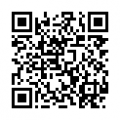Lies to seem more interesting and dateable include common deception among cellular internet dating app customers, a Stanford research finds.
For most online daters, the ceaseless contact of mobile technology made it tough to relax and play it cool. This is why, lying about availability is a very  common deception cellular software daters inform their particular possible associates, per a unique papers by two Stanford professionals.
common deception cellular software daters inform their particular possible associates, per a unique papers by two Stanford professionals.
Portable online dating application people incorporate deception as a courteous way to conceal undesired personal interactions, another Stanford research finds. (Picture credit score rating: Getty Imagery)
aˆ?Communication engineering hook up all of us now more than in the past,aˆ? stated Jeffrey Hancock, a teacher of correspondence within the Stanford class of Humanities and Sciences. aˆ?This report was an example of exactly how individuals respond to many of the newer challenges from technologies that connect us.aˆ?
Hancock, alongside David Markowitz, an old scholar scholar in communications who worked when you look at the Stanford social networking research established by Hancock, executed several research that examined deception in cellular internet dating conversations. These findings culminated in a paper published for the Journal of interaction.
aˆ?Until now, it is often fairly unknown how many times mobile daters incorporate deception within emails before they meet up with the other individual,aˆ? stated Markowitz.
The sits individuals determine, or even in most cases aˆ“ donaˆ™t inform
To find out exactly what sits men tell, Markowitz and Hancock hired significantly more than 200 individuals who need cellular programs for internet dating. They examined over 3,000 communications customers sent during discovery state aˆ“ the discussion duration after a profile fit prior to fulfilling face-to-face. Markowitz and Hancock subsequently questioned individuals to speed the amount of deceptiveness in communications.
The experts found that extremely, folks are sincere: almost two-thirds of individuals reported not informing any lays. But around 7 percent of information online daters sent comprise reported as deceptive.
When anyone lied, exactly what fibs did they inform?
aˆ?Most of those lies happened to be about affairs aˆ“ or perhaps not starting connections aˆ“ versus sleeping to get together,aˆ? mentioned Hancock.
A majority of lies had been powered by a want to seem more desirable, particularly exaggerating personal hobbies and accessibility. aˆ?Being constantly offered might also run into to be desperate. Therefore, individuals will rest regarding their availableness or their particular recent strategies,aˆ? mentioned Markowitz.
Hancock calls these deceptions aˆ?butler lies,aˆ? a phrase the guy created during 2009 with others to explain is that tactfully initiate or end talks. Called following the personal stewards of yesteryear, these lies need deception as a polite method to conceal undesired social communications.
When daters lied, around 30 % of deceptions are butler lays.
In a single instance, one associate messaged, aˆ?Hi Iaˆ™m so so sorry, but We donaˆ™t consider Iaˆ™m will be capable of making they nowadays. My cousin merely also known as and I guess sheaˆ™s on the means right here now. Iaˆ™d end up being right up for a raincheck should you decide need, though. Disappointed once again.aˆ? They rated this message as exceptionally deceitful but the associate it seems that still planned to remain in contact with the other person.
aˆ?Butler lies happened to be one of the ways that daters attempt to handle conserving face both for by themselves and their companion,aˆ? mentioned Hancock, who observed inside the papers why these deceptions can protect the connection in case daters actually ever fulfill face-to-face.
In another example, a participant advised the fit, aˆ?Not this evening, the [sic] late and Iaˆ™m therefore tired, have to be upwards early for jobs tomorrow.aˆ? The true factor, based on the person: aˆ?I was a little fatigued but we typically didnaˆ™t wish fulfill them because it ended up being late at night and I performednaˆ™t feel comfortable.aˆ?
Often participants told butler lies to decelerate the relationship. One person charged technology for unresponsiveness, saying aˆ?Im [sic] sorry we canaˆ™t text presently my mobile isn’t working.aˆ? But given that associate after told the researchers, aˆ?My telephone had been great. I recently have a lot of stalkers.aˆ?
aˆ?These information declare that technology may serve as a buffer to cease or hesitate future communications strategies between daters,aˆ? penned Markowitz and Hancock inside their findings.
The deception opinion influence
The professionals comprise in addition inquisitive to learn just how daters imagined the deceptiveness of rest.
They found that the greater individuals revealing lying in talk, the greater which they believed their companion had been lying besides. The researchers also known as this design of actions the deception consensus effects.
When individuals think about the steps of other people, they truly are biased by their own behavior, stated the experts.
But as Markowitz and Hancock highlighted, the regularity of lying-in cellular matchmaking is reasonably low.
aˆ?The information declare that mobile matchmaking deceptions tend to be strategic and relatively constrained. All of the communications folks submit giving are truthful referring to an optimistic step toward building have confidence in a new partnership,aˆ? stated Markowitz, who can getting signing up for the University of Oregon as an assistant teacher into the autumn.

